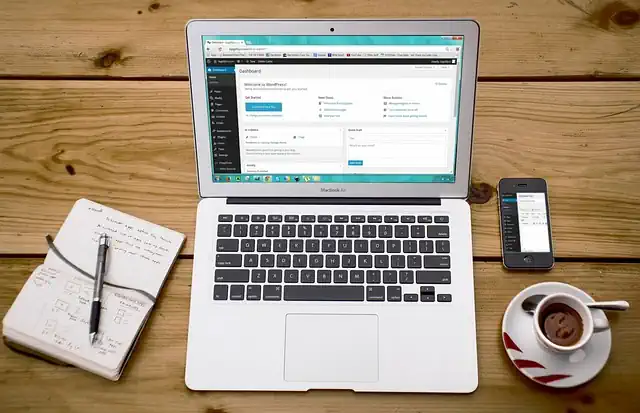How Can I Save Up Money
Introduction

Saving up money is an important aspect of financial planning. It helps individuals to achieve their financial goals and secure their future. There are various ways to save up money, and it requires discipline and commitment. In this article, we will discuss some effective ways to save up money and achieve financial stability.
10 Simple Ways to Cut Your Expenses and Save Money
Saving money is a crucial aspect of financial stability. However, it can be challenging to save up money, especially when you have a lot of expenses to take care of. Fortunately, there are simple ways to cut your expenses and save money. In this article, we will explore ten simple ways to cut your expenses and save money.
1. Create a budget
The first step to saving money is to create a budget. A budget helps you keep track of your expenses and income. It also helps you identify areas where you can cut back on expenses. To create a budget, list all your expenses and income. Then, allocate your income to your expenses. Ensure that you allocate enough money for your essential expenses such as rent, food, and utilities.
2. Cut back on eating out
Eating out can be expensive, especially if you do it frequently. To save money, consider cooking at home instead of eating out. You can also pack your lunch to work instead of buying it. This will help you save money on food expenses.
3. Cancel subscriptions
Subscriptions can be a significant drain on your finances. Consider canceling subscriptions that you don’t use or need. This includes gym memberships, magazine subscriptions, and streaming services. You can also negotiate with service providers to get a better deal.
4. Use public transportation
Using public transportation can help you save money on gas and car maintenance. Consider using public transportation instead of driving to work or school. You can also carpool with colleagues or friends to save money on transportation expenses.
5. Shop for deals
Shopping for deals can help you save money on groceries, clothes, and other items. Look for coupons, discounts, and sales when shopping. You can also buy items in bulk to save money.
6. Cut back on energy usage
Cutting back on energy usage can help you save money on utility bills. Turn off lights and appliances when not in use. You can also use energy-efficient light bulbs and appliances to save money on energy expenses.
7. Avoid impulse buying
Impulse buying can be a significant drain on your finances. To avoid impulse buying, make a shopping list before going to the store. Stick to your list and avoid buying items that you don’t need.
8. Use cash instead of credit cards
Using cash instead of credit cards can help you avoid overspending. When you use cash, you are more aware of how much money you are spending. This can help you stick to your budget and avoid unnecessary expenses.
9. Rent instead of buying
Renting items such as tools, equipment, and furniture can help you save money. Renting is often cheaper than buying, especially if you only need the item for a short period.
10. Negotiate bills
Negotiating bills can help you save money on expenses such as cable, internet, and phone bills. Call your service providers and ask for a better deal. You can also switch to a cheaper service provider if necessary.
In conclusion, saving up money is essential for financial stability. By following these ten simple ways to cut your expenses, you can save money and achieve your financial goals. Remember to create a budget, cut back on eating out, cancel subscriptions, use public transportation, shop for deals, cut back on energy usage, avoid impulse buying, use cash instead of credit cards, rent instead of buying, and negotiate bills. With these tips, you can save money and achieve financial freedom.
The Ultimate Guide to Creating a Budget and Sticking to It
Saving money is a crucial aspect of financial stability. However, it can be challenging to save up money, especially when you have bills to pay and other expenses to cater to. Nonetheless, with the right mindset and approach, you can create a budget and stick to it, which will help you save up money in the long run.
The first step towards saving up money is creating a budget. A budget is a financial plan that outlines your income and expenses. It helps you keep track of your spending and ensures that you do not overspend. To create a budget, you need to determine your income and expenses. Your income includes your salary, bonuses, and any other sources of income. Your expenses include your rent, utilities, groceries, transportation, and any other bills you have to pay.
Once you have determined your income and expenses, you need to categorize them. Categorizing your expenses helps you identify areas where you can cut back on spending. For instance, if you spend a lot of money on eating out, you can reduce the frequency of eating out and cook more meals at home. Additionally, you can also identify areas where you can negotiate for better rates, such as your cable or internet bills.
After categorizing your expenses, you need to allocate a specific amount of money to each category. This helps you prioritize your spending and ensures that you do not overspend. It is essential to allocate some money towards savings, even if it is a small amount. This helps you build a savings habit and ensures that you have some money set aside for emergencies.
Sticking to a budget can be challenging, especially if you are used to overspending. However, there are several strategies you can use to stick to your budget. One of the most effective strategies is tracking your spending. Tracking your spending helps you identify areas where you are overspending and adjust your budget accordingly. You can use a budgeting app or a spreadsheet to track your spending.
Another strategy you can use to stick to your budget is setting financial goals. Financial goals give you a reason to save up money and help you stay motivated. For instance, you can set a goal to save up for a down payment on a house or a vacation. Having a goal in mind helps you prioritize your spending and ensures that you do not overspend.
It is also essential to avoid impulse buying. Impulse buying is when you buy something on a whim without considering whether you need it or not. Impulse buying can derail your budget and make it challenging to save up money. To avoid impulse buying, you can create a shopping list before going to the store and stick to it. Additionally, you can also wait for a few days before making a purchase to ensure that it is something you really need.
In conclusion, saving up money requires discipline and a willingness to make sacrifices. Creating a budget and sticking to it is the first step towards financial stability. It helps you prioritize your spending and ensures that you do not overspend. Additionally, tracking your spending, setting financial goals, and avoiding impulse buying are effective strategies that can help you stick to your budget and save up money in the long run. Remember, saving up money is a journey, and it requires patience and consistency.
5 Creative Ways to Make Extra Money on the Side
Saving up money is a goal that many people have, but it can be difficult to achieve without making some changes to your lifestyle. One way to increase your savings is to find ways to make extra money on the side. Here are five creative ways to do just that.
1. Sell Your Skills
Do you have a talent or skill that others might be willing to pay for? Consider offering your services as a freelancer or consultant. This could include anything from graphic design to writing to social media management. Websites like Upwork and Fiverr make it easy to find clients and get paid for your work.
2. Rent Out Your Space
If you have a spare room or a vacation home, consider renting it out on Airbnb or VRBO. This can be a great way to earn extra income, especially if you live in a popular tourist destination. Just be sure to check local laws and regulations before listing your property.
3. Participate in Online Surveys
There are many websites that will pay you to take surveys or participate in market research studies. While you won’t get rich doing this, it can be a good way to earn a little extra cash in your spare time. Just be sure to do your research and only sign up for reputable survey sites.
4. Sell Your Stuff
Do you have clothes, electronics, or other items that you no longer need or use? Consider selling them online through websites like eBay or Craigslist. You could also have a garage sale or sell items at a local flea market. Not only will you make some extra money, but you’ll also declutter your home in the process.
5. Start a Side Hustle
If you have a passion or hobby that you could turn into a business, consider starting a side hustle. This could include anything from selling handmade crafts on Etsy to offering pet-sitting services in your neighborhood. Just be sure to do your research and create a solid business plan before diving in.
While these are just a few ideas, there are many other ways to make extra money on the side. The key is to find something that you enjoy and that fits into your schedule. Remember, every little bit helps when it comes to saving up money. By finding creative ways to earn extra income, you’ll be one step closer to achieving your financial goals.
How to Save Money on Your Monthly Bills: Tips and Tricks
Saving money is a goal that many people have, but it can be difficult to achieve. One of the best ways to save money is to reduce your monthly bills. There are many tips and tricks that you can use to lower your bills and save money each month.
One of the easiest ways to save money on your monthly bills is to reduce your energy usage. This can be done by turning off lights and electronics when they are not in use, using energy-efficient light bulbs, and adjusting your thermostat to a lower temperature in the winter and a higher temperature in the summer. You can also save money on your energy bills by using appliances that are energy-efficient, such as refrigerators, washing machines, and dryers.
Another way to save money on your monthly bills is to reduce your water usage. This can be done by taking shorter showers, fixing leaky faucets, and using a low-flow toilet. You can also save money on your water bills by using a rain barrel to collect rainwater for your garden or lawn.
If you have a cell phone, you can save money on your monthly bill by choosing a plan that fits your needs. Many cell phone providers offer plans that include unlimited talk, text, and data, which can save you money if you use your phone frequently. You can also save money by choosing a plan that does not include a phone upgrade every year.
If you have cable or satellite TV, you can save money on your monthly bill by choosing a lower-tier package or by cutting the cord altogether. Many streaming services, such as Netflix and Hulu, offer a wide variety of TV shows and movies at a fraction of the cost of cable or satellite TV.
Another way to save money on your monthly bills is to reduce your insurance costs. You can do this by shopping around for the best rates on car, home, and health insurance. You can also save money by increasing your deductibles or by bundling your insurance policies with one provider.
Finally, you can save money on your monthly bills by reducing your debt. This can be done by paying off credit card balances, consolidating loans, and negotiating with creditors for lower interest rates. By reducing your debt, you can free up more money each month to put towards savings or other expenses.
In conclusion, there are many ways to save money on your monthly bills. By reducing your energy and water usage, choosing a cell phone plan that fits your needs, cutting the cord on cable or satellite TV, shopping around for insurance rates, and reducing your debt, you can save money each month and work towards your financial goals. It may take some effort and sacrifice, but the rewards of saving money can be well worth it in the long run.
The Importance of Saving for Your Future: Retirement Planning 101
Saving money is an essential aspect of financial planning. It is a habit that everyone should cultivate, regardless of their income level. Saving money can help you achieve your financial goals, such as buying a house, starting a business, or retiring comfortably. In this article, we will discuss the importance of saving for your future, specifically retirement planning.
Retirement planning is the process of setting aside money for your retirement years. It involves determining how much money you will need to live comfortably during your retirement years and creating a plan to achieve that goal. Retirement planning is crucial because it ensures that you have enough money to support yourself when you are no longer working.
The first step in retirement planning is to determine how much money you will need to live comfortably during your retirement years. This involves estimating your living expenses, such as housing, food, healthcare, and entertainment. You should also consider any additional expenses, such as travel or hobbies. Once you have estimated your living expenses, you can calculate how much money you will need to save to achieve your retirement goals.
The next step in retirement planning is to create a plan to achieve your retirement goals. This involves setting aside a portion of your income each month for retirement savings. You can do this by contributing to a retirement account, such as a 401(k) or IRA. These accounts offer tax benefits and can help your money grow over time. You should also consider diversifying your retirement savings by investing in stocks, bonds, or mutual funds.
One of the most significant benefits of retirement planning is the peace of mind it provides. Knowing that you have enough money to support yourself during your retirement years can alleviate financial stress and allow you to enjoy your retirement. Retirement planning also allows you to take advantage of compound interest, which can help your money grow over time.
Another benefit of retirement planning is the ability to retire on your terms. Without proper planning, you may be forced to work longer than you want or live on a limited income during your retirement years. Retirement planning allows you to retire when you want and live the lifestyle you desire.
In conclusion, saving for your future, specifically retirement planning, is crucial for financial stability and peace of mind. It involves determining how much money you will need to live comfortably during your retirement years and creating a plan to achieve that goal. Retirement planning allows you to retire on your terms and enjoy your retirement years without financial stress. So, start saving today and secure your financial future.
Conclusion
Conclusion: To save up money, it is important to create a budget, track expenses, reduce unnecessary spending, and find ways to increase income. It requires discipline and commitment, but the benefits of having savings for emergencies, investments, and future goals are worth the effort.







